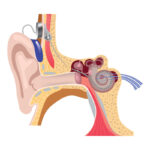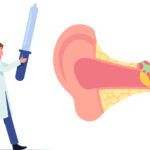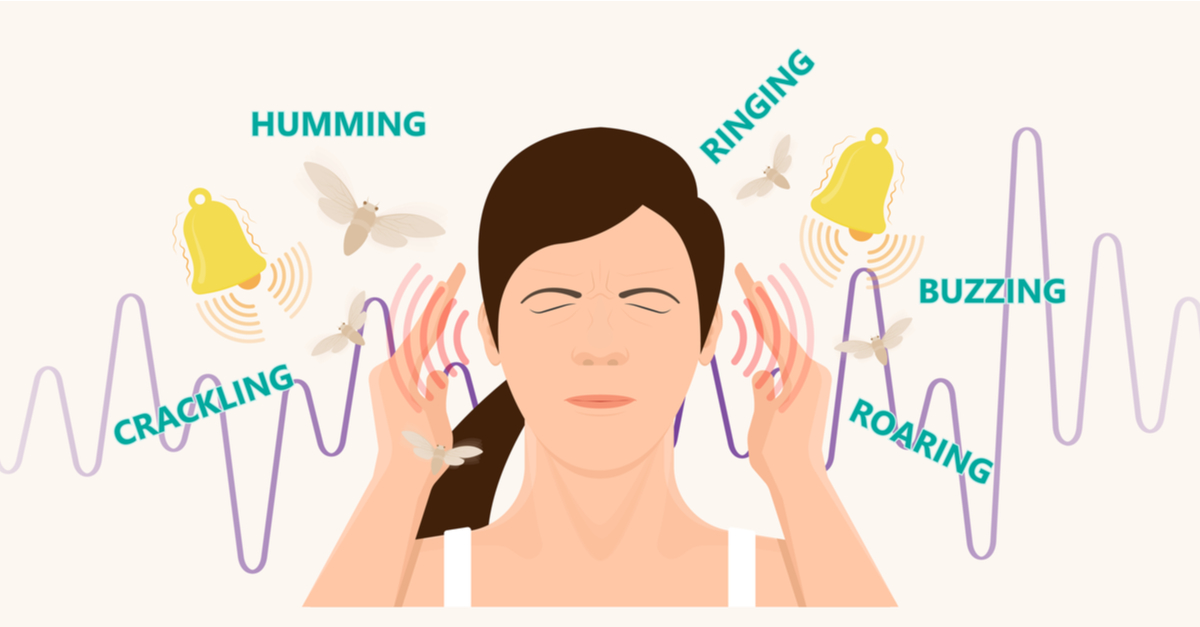Beware the Buzzing: It Might Indicate a Deeper Issue
Tinnitus, a common condition that affects millions of people worldwide, is a medical condition characterized by a persistent buzzing, ringing, hissing, or whistling sound in the ear or head. This condition can occur in one or both ears and can range from mild to severe.
The sound can be intermittent or constant and can vary in pitch, volume, and duration. The causes of tinnitus can be numerous, including exposure to loud noise, age-related hearing loss, earwax buildup, and other underlying medical conditions such as high blood pressure, temporomandibular joint (TMJ) disorder, and Meniere's disease.
Although tinnitus is not a life-threatening condition, it can be quite bothersome and affect a person's quality of life. The constant noise can disrupt sleep, cause anxiety and depression, and make it difficult to concentrate or perform daily activities.
Therefore, if you experience any symptoms of tinnitus, it is important to seek medical attention as soon as possible. A doctor can perform a thorough evaluation to determine the underlying cause of your tinnitus and recommend appropriate treatment options.
In some cases, treating the underlying medical condition can alleviate the symptoms of tinnitus. For example, if tinnitus is caused by high blood pressure, medication or lifestyle changes to manage blood pressure can help reduce the symptoms of tinnitus.
Similarly, if the tinnitus is caused by TMJ disorder, treatment may involve the use of a mouthguard or other dental appliances to reduce the stress on the jaw joint.
Tinnitus is a buzzing in my head

If you've been struggling with the buzzing noise in your head, you're not alone. Millions of people suffer from this problem. Most often, it's caused by a hearing problem, such as age-related hearing loss. Other causes include exposure to loud noise, allergies, or an accumulation of wax in the ear. But there are times when you don't even have a cause for the sound.
The constant buzzing noise in your head or ringing in your ears is called tinnitus. It's not usually a sign of anything serious, and it may improve on its own. It may occur in one or both ears, or it may be in the entire head. It can be constant, intermittent, or pulsating. There are many treatment options available for tinnitus, including medications and ear infections.
Initially, you should consult a doctor to get diagnosed. If the noise is only in one ear, a specialist may recommend a hearing test. An otolaryngologist, or doctor who specializes in the ear, nose, and throat, will examine your ears and take a comprehensive medical history. He or she may also order tests, such as a head CT or MRI, as well as blood vessel studies. If tinnitus is caused by a brain disorder, your doctor may prescribe medications to improve your hearing.
In addition to medication, cognitive behavioral therapy can help you deal with tinnitus. This therapy involves changing the way you think and respond to your symptoms. It can also help you reduce the noise level, which can make the noise less prominent and less bothersome. When your tinnitus is caused by a faulty inner ear, you should use earplugs to drown out the noise.
If you've been suffering from a ringing in your head, you may have a heart murmur. This type of hearing problem causes a whooshing sound with each heartbeat. A stethoscope can detect this sound. A clinical audiologist can diagnose this type of tinnitus in just a few cases, but most cases are subjective.
It is a sign of high blood pressure
If you're experiencing a pounding or ringing noise in your head, you might be suffering from high blood pressure. This condition affects approximately 68 million adults in the United States. About 20% of those adults don't realize they have the condition, and many people choose to ignore or dismiss these symptoms. High blood pressure is a serious problem, and symptoms can vary significantly.
It is a sign of TMJ

Tinnitus is another common symptom of TMJ. Many people suffer from both disorders. Because the eardrum is located close to the temporomandibular joint, a problem with the joint may also cause noise and pain in the ears. The temporomandibular joint is connected to the muscles in the neck and shoulders. It can be hard to find relief from these symptoms on your own, but it is possible to find a treatment that will reduce your pain and discomfort.
The TMJ is a structure composed of bones, muscles, and blood vessels on either side of the face. It controls the opening and closing of the mouth and distributes forces from chewing throughout the joint space. Various factors can cause TMJ syndrome, including trauma, disease, or wear and tear from poor oral hygiene. If you experience chronic pain in this area, you should seek immediate medical attention to determine if it is TMJ.
One of the most common causes of tinnitus is TMJ disorder. This condition affects your jaw movement and may affect your hearing. This condition may cause an annoying buzzing or ringing sound in your ears. If you have this condition, your jaw will need to be reconstructed. Once you have been diagnosed, treatment can begin. Once diagnosed, TMJ is easily treatable.
Vertigo is another common TMJ symptom. The brain receives different signals from the balance mechanisms. Because TMJ can cause problems with these mechanisms, the brain is unable to recognize its position properly. People who suffer from vertigo are often off-balance. In addition, a malfunctioning TMJ can affect the balance sensors in the ear. This can lead to dizziness and vertigo.
While TMJ causes pain in the jaw, it is also associated with other problems in the face, neck, and ear. Those who suffer from this condition will often experience jaw pain, earaches, neck, and jaw tingling. In addition to pain in the jaw, TMJ can also lead to a range of other symptoms, including headache, neck pain, and vertigo. An oral surgeon can help you determine the exact cause of your symptoms and determine the best treatment option.
Conclusion
Tinnitus is a common condition that can significantly impact a person's quality of life. It can be caused by various factors, including exposure to loud noise, age-related hearing loss, and underlying medical conditions such as high blood pressure and TMJ disorder. Although tinnitus is not usually a sign of a serious medical condition, it is essential to seek medical attention if you experience any symptoms. Treatment options can vary, from medication to cognitive-behavioral therapy, and depend on the underlying cause of the tinnitus.







